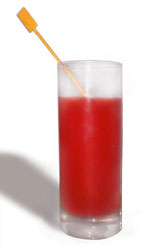






Lobbied through the Phuza Wize campaign run by the Soul City Institute and championed by the Health Ministry, this ground-breaking legislation aims to reduce the harmful effects of alcohol consumption in South Africa to promote safer drinking.
According to the Soul City Institute's advocacy manager, Savera Kalideen, in the months following the announcement of the proposed legislation to restrict or ban alcohol marketing and advertising, there has been an increase in debate on the issue with the advertising industry unsurprisingly claiming that there is no relationship between the negative impacts of alcohol consumption and the marketing and advertising of alcohol.
Through the discussions, it was clear that for the benefit of societies and for the reduction of heavy expenditure from a public health perspective, a ban or a restriction was inevitable.
Kalideen explains that the heart of the issue is not just about how much South Africans drink on average, but rather to show that alcohol advertisements contribute to normalising harmful patterns of alcohol consumption and recruiting new alcohol consumers. It is also to interrogate the glamorisation and aspirational tone of most advertising as it continues to lure new alcohol drinking markets. This has a tangible impact on the health, finances and social relationships of consumers.
"The alcohol industry is trying to hide behind technical definitions of advertising as the promotion of products and brand competition when the very purpose of promoting a product is to persuade buyers to use or consume it," says Kalideen.

Kalideen says, "Alcohol remains the legal most common primary drug of choice across the country and as such, is a gateway drug to other substances as well. It results in risks, including accidents, injuries, teenage pregnancies, as well as unprotected sexual behaviour which may lead to HIV transmission".
According to the latest Medical Research Council study on health-related harm caused by alcohol, 40% is due to violence, 18% is due to mental health problems resulting from alcohol abuse and dependence disorders, and 12% is due to road deaths - of which 60% consisted of drunken pedestrians hit by cars. A 2010 report on the crime situation in South Africa by the South African Police Service also acknowledges that alcohol frequently plays a role in violent social contact crime such as murders, attempted murders, rape and assaults.
"If we want to understand and combat the extremely high levels of interpersonal violence we experience in South Africa, we have to reduce access to alcohol by banning alcohol marketing and advertising, among other critical interventions," Kalideen says.
In March 2010, the Soul City Institute launched the Phuza Wize campaign which promotes the creation of safer social spaces by encouraging several key activities including eating food before drinking, drinking with familiar people and alternating alcoholic drinks with water or soft drinks.
The alcohol advertisements that we see around us, many in violation of the industry's own code of regulations, make it clear that the liquor industry cannot be left to regulate itself. They continue to link success, masculinity and glamour to high levels of alcohol consumption and place adverts in the media platforms that are accessible to children. The solution is a ban on all forms of alcohol marketing and advertising as well as strict monitoring and enforcement with severe penalties for those who infringe the laws.